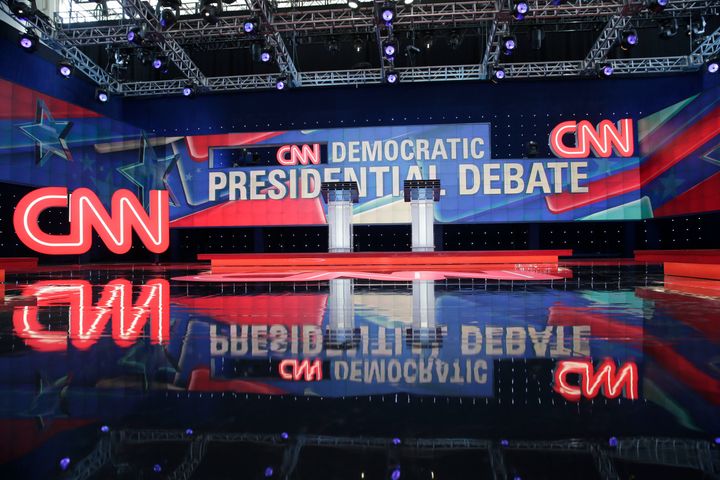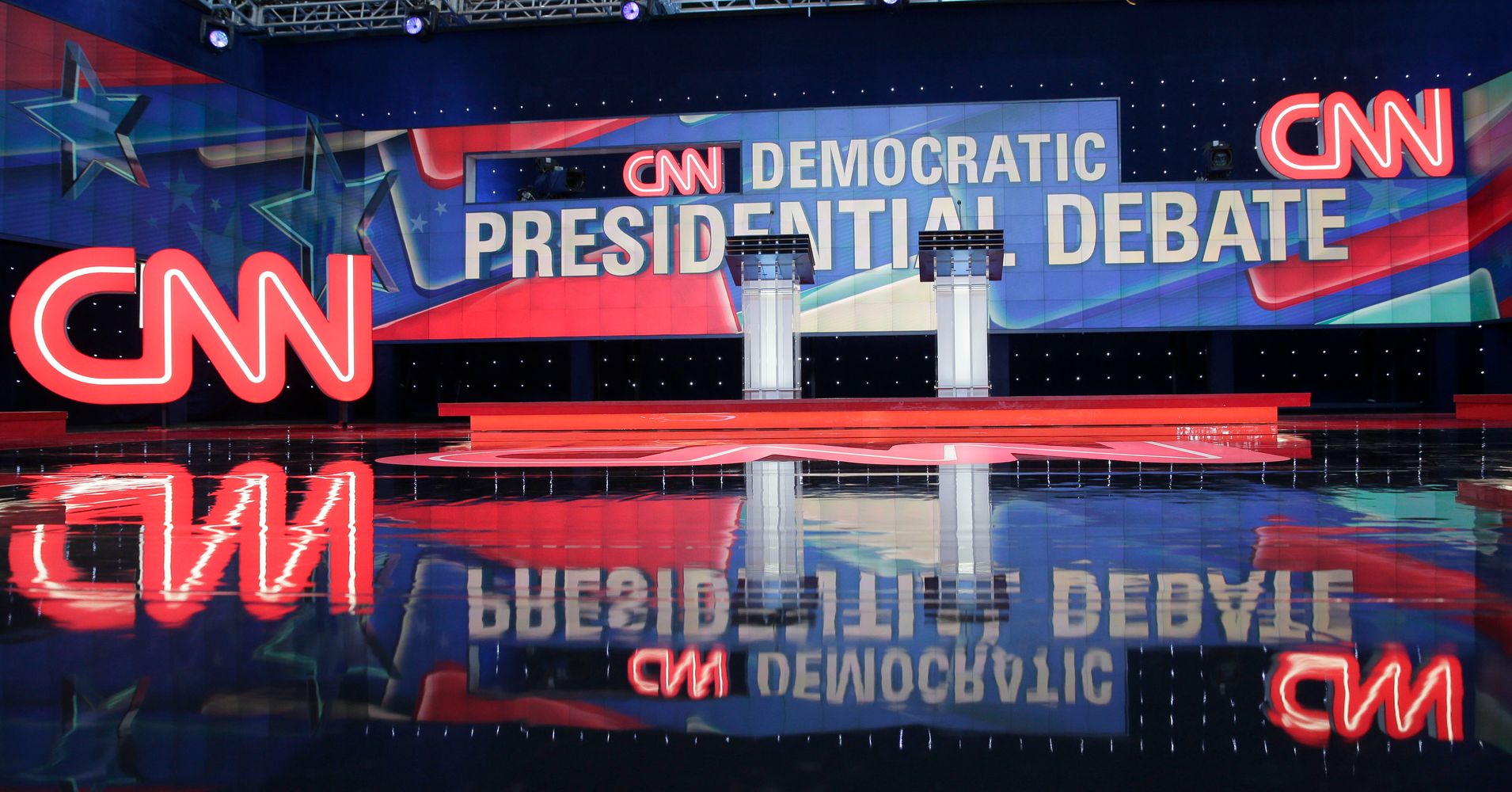[ad_1]
There has been a severe lack of diversity among moderators of primary debates in presidential races over the last couple of decades, according to a new report.
An analysis released Thursday from Time’s Up ― a group formed amid the Me Too movement against sexual harassment ― looked at 132 primary debates in presidential races from 1996 through 2016.
In 44% of the debates (or 58 debates), there were no female moderators. And in nearly three-quarters of the debates (73%, or 96 debates), the moderators were all white. Only 1 in 5 debates (26 of them) had at least one black moderator, and 11% had at least one Latinx one.
And 86% of debates (114 debates total) had no women of color on their moderating panels.
“Debate moderators have enormous power, and they need to better represent today’s voters,” Jennifer Klein, the chief strategy and policy officer at Time’s Up, said in a news release. The group noted that debate moderators often determine which questions are asked of candidates and which issues get lifted up as important in an election.
Last week, the Democratic National Committee announced new requirements for its primary debates, committing to having at least one woman and one person of color (sometimes the same person) as moderator at each of its primary debates for the 2020 presidential election.
In the crowded 2020 presidential race, there are more than 20 Democratic candidates, including several women and people of color ― the most diverse group in a presidential race ever.

In its analysis of presidential primary debates since 1996, Time’s Up pulled from online data from the American Presidency Project and the University of Virginia Center for Policy Research. It included among the debates it counted any primary debates, undercard or “secondary” debates, radio debates, and some town halls and forums. It also counted “panelists” as moderators.
While gender representation among primary debate moderators improved in recent elections, racial diversity did not. In 2008, 18% of moderators were women, and that ticked up to 20% in 2012, and grew to 42% female moderators in 2016. Meanwhile, though 22% of moderators were black or Latinx in 2008, that went down to 8% in 2012 and 11% in 2016.
Feminist group UltraViolet has been campaigning for weeks for major networks to include women and people of color as moderators in the 2020 primary and general election debates.
In its Thursday report, Time’s Up called for debate moderators to ask questions it considered “key” to women voters, including ones on sexual harassment, equal pay, paid family leave and affordable child care.
In 2016, PBS’ Judy Woodruff and the late Gwen Ifill made history as the first women to moderate a Democratic primary debate without being accompanied by any male moderators. Several of the 2016 Democratic primary debates were moderated solely by men.
The DNC has announced it will host 12 primary debates, with the first one later this month.
REAL LIFE. REAL NEWS. REAL VOICES.
Help us tell more of the stories that matter from voices that too often remain unheard.
[ad_2]
Source link

